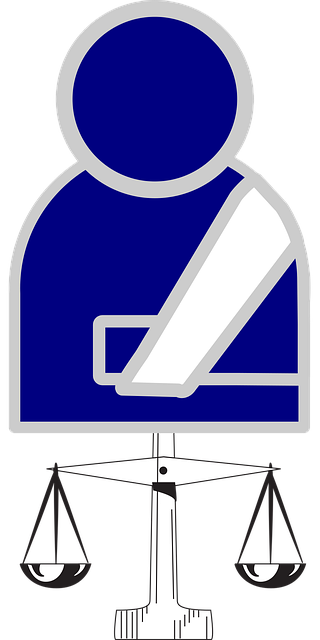Tech solutions for impaired driving, leveraging data analytics, GPS tracking, and mobile apps with breathalyzer tests, offer powerful tools for intervention and prevention. These technologies empower authorities to predict and target at-risk individuals, while aiding law enforcement in combating impaired driving proactively. Advanced features like fatigue monitoring and real-time risk prediction enhance road safety, deterring dangerous behavior and preventing accidents. Data analysis uncovers hidden patterns, enabling targeted interventions. Personalized tech-driven approaches support high-risk drivers, breaking the cycle of reoffending. Community engagement, coupled with innovative apps and platforms, offers emotional backing and connects at-risk drivers to support systems. Measuring success involves tracking KPIs like recidivism rates using real-time insights from monitoring systems and analytics algorithms.
High-risk reoffenders pose a significant challenge in breaking the cycle of criminal behavior, especially with issues like impaired driving. This complex issue demands innovative approaches and tech solutions. By leveraging data analysis to identify patterns and risks, personalized interventions can disrupt recurring behaviors. Engaging communities to foster supportive networks enhances these efforts. Through evaluating program effectiveness, we can measure success and refine strategies, ultimately reducing recidivism rates and keeping roads safer with Tech Solutions for Impaired Driving.
- Understanding High-Risk Reoffenders: A Complex Issue
- Tech Solutions for Impaired Driving Prevention
- Data Analysis: Identifying Patterns and Risks
- Personalized Interventions: Breaking the Cycle
- Community Engagement: Supportive Networks
- Measuring Success: Evaluating Program Effectiveness
Understanding High-Risk Reoffenders: A Complex Issue

Identifying high-risk reoffenders, especially those with a history of impaired driving, is a complex issue that requires careful consideration. These individuals often face unique challenges and have a higher likelihood of reoffending, making it crucial to understand their behaviors and motivations. Tech solutions for impaired driving can play a significant role in addressing this problem.
Advanced technologies offer promising tools for intervention and prevention. By leveraging data analytics, authorities can predict and target at-risk individuals more effectively. GPS tracking, for instance, can monitor high-risk offenders’ movements, ensuring they adhere to legal restrictions. Additionally, mobile apps with real-time breathalyzer tests and immediate reporting features empower both law enforcement and individuals to combat impaired driving proactively.
Tech Solutions for Impaired Driving Prevention

In the ongoing battle against impaired driving, technology has emerged as a powerful ally. Modern tech solutions for impaired driving prevention leverage advanced features and sensors to detect and discourage dangerous behavior behind the wheel. From in-vehicle systems that monitor driver fatigue and alert when signs of impairment are detected, to mobile apps that track and analyze driving patterns, these innovations are transforming road safety.
Moreover, emerging technologies like artificial intelligence and machine learning enable real-time analysis of driver behavior, predicting potential risks with increasing accuracy. This proactive approach not only helps in preventing accidents but also plays a crucial role in breaking the cycle of reoffending by identifying at-risk individuals who may benefit from targeted interventions and support services.
Data Analysis: Identifying Patterns and Risks

Data analysis plays a pivotal role in identifying patterns and risks associated with high-risk reoffenders, especially in the context of impaired driving. By leveraging advanced tech solutions, law enforcement agencies can gain valuable insights into repeat offenders’ behavior, enabling them to develop targeted interventions. These solutions employ intricate algorithms to scrutinize vast datasets, including historical records of arrests, traffic violations, and demographic information, uncovering hidden correlations that may indicate elevated risk factors for reoffending.
Through this data-driven approach, patterns emerge, such as specific age groups, geographic locations, or recurring driving behaviors linked to impaired driving incidents. This knowledge allows for the creation of more effective prevention strategies tailored to these high-risk segments. Tech solutions can also facilitate predictive analytics, enabling agencies to proactively identify individuals likely to reoffend and intervene before potential incidents occur, thereby breaking the cycle of impaired driving and promoting road safety.
Personalized Interventions: Breaking the Cycle

Personalized interventions are key to breaking the cycle of reoffending, especially for high-risk individuals who struggle with impaired driving. Tech solutions play a pivotal role in this regard, offering innovative ways to monitor and support at-risk drivers. Advanced monitoring systems, integrated with data analytics, can provide real-time insights into an individual’s behavior, enabling early intervention when deviations from sober driving patterns are detected.
These tech-driven approaches go beyond traditional punishment, focusing on personalized support and education. Apps designed for responsible driving can educate users about the dangers of impaired driving while offering incentives for safe behavior. Additionally, virtual coaching platforms provide tailored guidance, helping individuals develop coping strategies to resist the urge to drive under the influence. By leveraging technology in this manner, communities can empower high-risk reoffenders to make positive changes and break free from the cycle of impaired driving.
Community Engagement: Supportive Networks

Community engagement plays a pivotal role in breaking the cycle of reoffending among high-risk individuals, particularly those with impaired driving records. Building supportive networks within the community can offer much-needed guidance and accountability. Through initiatives that foster social connections, such as mentorship programs or support groups, former offenders can gain access to resources and emotional backing, which are essential for long-term rehabilitation. These networks provide a safety net, helping individuals navigate challenging situations and resist the temptation to reoffend.
Tech solutions for impaired driving further enhance community engagement efforts. Innovative apps and platforms can connect at-risk drivers with support systems, offer real-time assistance during crises, and promote responsible behavior. By leveraging technology, communities can expand their reach, provide more personalized support, and ultimately contribute to a safer environment for all.
Measuring Success: Evaluating Program Effectiveness

Measuring success in breaking the cycle of reoffending requires a comprehensive evaluation of program effectiveness. This involves tracking key performance indicators (KPIs) such as recidivism rates, participant retention, and behavioral changes. By employing tech solutions for impaired driving, such as advanced monitoring systems and data analytics, programs can gather real-time insights into participant progress and identify areas for improvement.
These technological advancements enable more precise interventions by providing evidence-based data. For instance, GPS tracking devices and mobile apps can monitor compliance with program requirements, while predictive analytics algorithms can anticipate potential reoffending risks. This data-driven approach enhances the overall success of rehabilitation efforts, ensuring that resources are allocated efficiently to support high-risk reoffenders in their journey towards positive change.
Breaking the cycle of high-risk reoffending requires a multi-faceted approach. By leveraging tech solutions for impaired driving prevention, data analysis to identify patterns and risks, personalized interventions, community engagement, and effective program evaluation, we can create supportive networks that empower individuals to stay on the right path. Tech solutions play a crucial role in enhancing safety and providing targeted support, making it possible to navigate this complex issue successfully.






